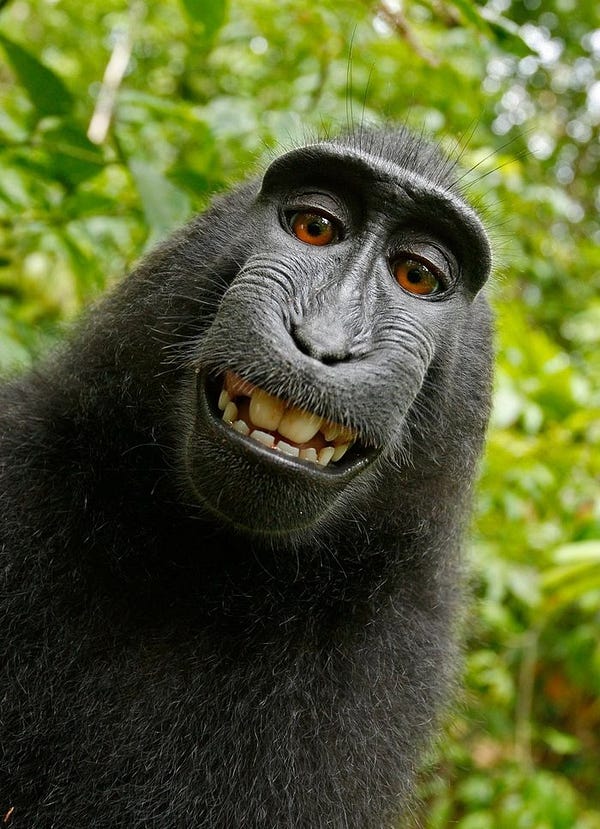Who Owns IP Rights in the Age of Artificial Intelligence?
Source: Jeremy Cubert
 “Experimentation is the least arrogant method of gaining knowledge. The experimenter humbly asks a question of nature.” — Isaac Asimov
“Experimentation is the least arrogant method of gaining knowledge. The experimenter humbly asks a question of nature.” — Isaac Asimov
Artificial Intelligence (AI) is coming for your job. But is it coming for your photographer or inventor? The driver-less cars, automated factories, and automated laboratories of today may give way to AI capable of thinking, writing, creating or even diagnosing disease.
While we may be many years away from true “general AI” capable of human-like intelligence, automation is taking over many tasks relegated to humans — like running laboratory experiments or being a lawyer.
The term “narrow” or “weak” AI, refers to AI capable of performing “specific ‘intelligent’ behaviors in specific contexts,” while “strong” or “general” AI refers to “hardware or software emulating human-like general intelligence.”
Intellectual property law focuses on creators and inventors — people who create and invent. For example, the U.S. Constitution refers to securing exclusive rights to “authors and inventors.” Arguably, the definition of “authors and inventors” could include non-humans, but there is no legal authority in the US for doing so.
In a typical scenario, the employer of a creator or inventor becomes the owner of the intellectual property by virtue of a work for hire or employment agreement. What happens when the creator or inventor is a general AI?
Imagine a biotechnology company of the future that deploys AI to identify a chemical compound that binds to a receptor of interest. The AI considers the available literature and the detailed structure of the receptor. It devises and deploys a protocol to design candidate chemical compounds and tests the ability of the compound to bind to the target receptor.
The company patent attorney sits down to write the application and immediately faces a dilemma. Who should be named as an inventor? The AI programmer? In this case, the AI, not the programmer designed the candidate chemical compounds and tested them. In this scenario, there would be no inventor and no intellectual property.
To some, this outcome may be preferable. After all, the purpose of patent law is to encourage people to invent, not machines. However, we may want to incentivize companies to invest in AI capable of inventing new drugs.
The law could be amended to define “author” and “inventor” as “hardware or software capable of human-like intelligence” or a more nuanced definition that references independent thought or even being sentient. However, would we be opening pandora’s box of conferring “additional rights” to AI capable of independent thought and creativity?
Recently, a US court held that a monkey was not entitled to copyright protection for a selfie. According to Judge William Orrick “If they (Congress, the President) think animals should have the right of copyright they’re free, I think, under the Constitution, to do that.”
How would creativity and invention be incentivized by expanding the definition of an author to include a monkey taking a selfie? Since the monkey is not an economic actor, would copyright provide any incentive for the monkey to take more selfies? If the rights flow from the monkey to monkey’s owner, the owner may be incentivized to let loose a monkey photographer in the hope of generating value from the resulting monkey photo shoot.
...if the AI were self-aware and capable of creative and inventive activity, why shouldn’t other rights be accorded?
On the other hand, some may argue that the monkey is a sentient being entitled to ownership rights. It is not difficult to imagine that those bringing the copyright lawsuit had ulterior motives. If a monkey could own a copyright, why not a house? And if a monkey could own property, perhaps the monkey should have additional rights including the right not to be owned at all.
The same issues may arise with respect to general AI. If the AI were self-aware and capable of creative and inventive activity, why shouldn’t other rights be accorded?
These questions raise issues that go to the very foundations of intellectual property law, including the economic incentive to encourage certain activities, and the “moral rights” associating with according credit to authors.
How we resolve these issues has broader implications for how we integrate AI into our economy and, more importantly, how we decide who is entitled to rights in the first place.
| }
|